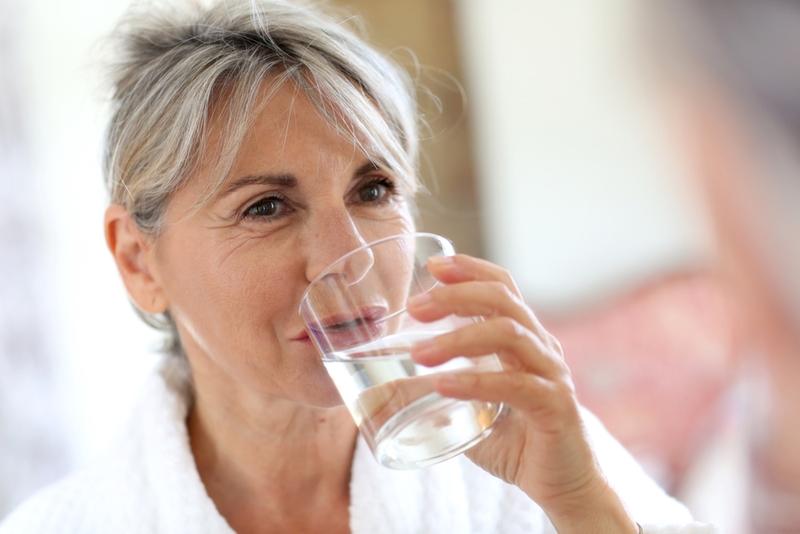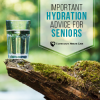Dehydration is a major health issue that many people experience every day. It’s extremely common among seniors, as they often feel less thirsty and consume fewer meals and beverages than their younger counterparts. Additionally, many seniors take medications or live with diseases or swallowing disorders that may exacerbate dehydration, explained A Place for Mom. Dehydration can lead to other severe health issues, and may result in hospitalization in some cases.
To avoid dehydration, check out this important information about staying hydrated.
Symptoms of dehydration
Because many seniors don’t experience strong sensations of thirst, they may not realize they’re not consuming enough water. As such, it’s vital to know what the symptoms of dehydration are so you can identify them in yourself and others. According to the Mayo Clinic, mild dehydration includes signs like dry mouth, thirst, decreased urine output, tiredness, dry skin, constipation, headache and lightheadedness. If you feel these symptoms, always increase your water intake immediately, and focus on drinking plenty of fluids throughout the rest of the day.
The source noted that severe dehydration includes symptoms like extreme thirst, little or no need to urinate, dark urine, very dry skin with a lack of elasticity, rapid breathing and heartbeat, low blood pressure, fever and even delirium. Because dehydration affects your entire body, its symptoms are about more than just feeling thirsty. This is especially true among seniors, as this demographic doesn’t experience this sensation very strongly. The Mayo Clinic explained that, when in doubt about your hydration, always refer to the frequency and color of your urine as a fairly reliable measure.

- Drinking water throughout the day is a habit all seniors should get into.
Prevent dehydration from occurring
In order to reduce your risk of becoming dehydrated, there are a number of lifestyle changes you should make. Here are three ways to ensure you’re getting plenty of fluids.
1. Drink enough water
If you typically only drink when you feel thirsty, you’re never going to get enough water into your system. You need to make sure you’re consuming enough H2O for your age, gender and size. As a rule of thumb, seniors over 65 should be taking in 2 liters of water per day, explained A Place for Mom. Try drinking a glass of water with each meal and between each meal, and always have a bottle of water accessible to you.
2. Pay attention to the heat
When your body heats up, you need to be consuming extra water to make up for what’s being lost through sweat. Whether you’re inside or outside, active or sedentary, you should be vigilant about drinking water whenever you feel hot.
3. Eat a healthy diet
Because water can be absorbed through H2O-heavy fruits and vegetables, eating meals that contain fresh produce helps you stay hydrated as well. Try incorporating fruits and vegetables into every meal to increase your water consumption.
If you found an error, highlight it and press Shift + Enter or click here to inform us.



